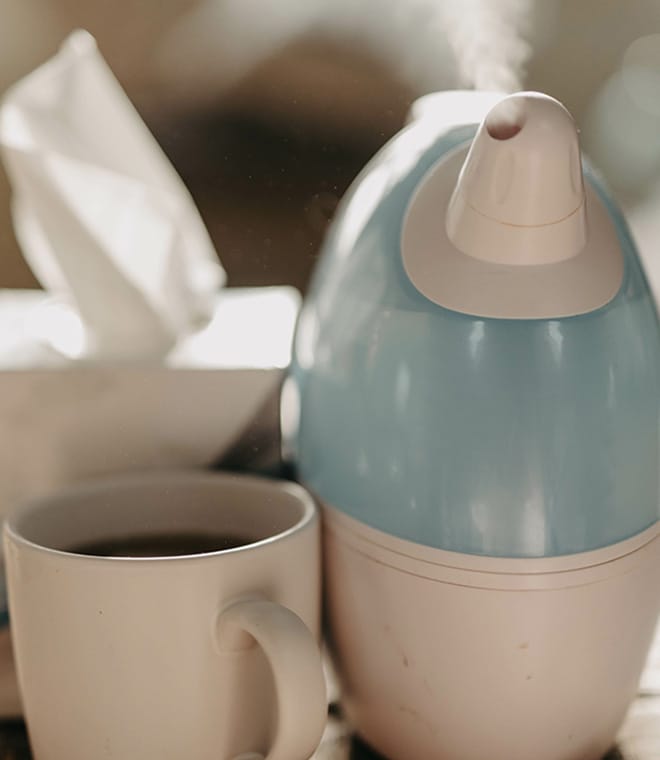Health
Medicine for cold and sinus: What are the options?
By Jenilee Matz, MPH May 21, 2024 • 4 min
Headache, nasal pain, congestion, runny nose and fatigue. There's no doubt that these symptoms can make you feel miserable, but it can be hard to tell what's causing the discomfort. Is it a cold or sinus infection? Both of these illnesses share many of the same symptoms, and treatment is often similar, too. Here you'll learn about colds and sinus infections, including cold and sinus medicines.
The difference between a cold and a sinus infection
The common cold is a respiratory disease caused by a virus. It's also one of the most common illnesses in the U.S., with adults getting an average of two to three colds per year, and children catching between six to eight colds per year. Most of the time, colds resolve on their own within three to seven days, with some symptoms possibly lingering for up to two weeks. But in some cases, colds can temporarily weaken the immune system or cause swelling of the lining of the airways or nose. This can lead to a secondary viral or bacterial infection, such as a sinus infection.
A sinus infection or sinusitis is the swelling of the lining of the sinuses (hollow areas in the forehead, behind the cheeks and between the eyes that connect to the nasal openings) and nose. The most common cause of a sinus infection is a virus associated with a cold. However, about 2% of sinus infections are bacterial infections. Sinus infections usually improve within 10 days, but when they last longer, they're more likely to be bacterial infections.
Cold and sinus infection symptoms
Because a sinus infection often develops due to a cold, it can be difficult to tell if you have a cold or sinus infection. In general, sinus infections tend to cause more pain, pressure or fullness in the sinuses than a cold does. Symptoms of a sinus infection include:
- Facial pressure, fullness or pain, especially on one side
- Pain in your teeth
- Stuffy or runny nose; nasal discharge may be white, yellow or green
- Reduced or loss of ability to smell
- Ear pressure or fullness
- Headache
- Bad breath
- Fever
- Fatigue
- Cough
Symptoms of a cold include:
- Stuffy or runny nose; nasal discharge may be white, yellow or green
- Sneezing
- Sore throat
- Cough
- Post-nasal drip (mucus that drips down your throat)
- Watery eyes
- Mild headache or body aches
Treatment for colds and sinus infections
All colds and most sinus infections are caused by viruses and clear up on their own without treatment. Know that antibiotics do not work against viruses. Cold and sinus infection treatment involves relieving symptoms. Home remedies and over-the-counter medications can help you feel better, but they do not shorten the length of the illness. Getting plenty of rest, drinking enough water, applying a warm compress to your sinus area and using a humidifier can make you more comfortable.
Over-the-counter (OTC) medications can also help alleviate cold and sinus symptoms. Read labels closely when choosing a medication. Note that combination medicines contain more than one active ingredient. For example, Alka Seltzer Plus contains several active ingredients, including acetaminophen (Tylenol). In this case, you'd have to be careful to not also take a separate dose of acetaminophen. You also should not take medications for symptoms you don't have. Your pharmacist can help you find an OTC product to treat your specific symptoms:
- Pain medications or sinus headache medicines, such as acetaminophen, ibuprofen (Advil, Motrin) or naproxen (Aleve), can help relieve pain. These medications can also reduce fevers.
- Decongestants act as sinus congestion medicines and sinus pressure medicines. They work by narrowing blood vessels to help decrease swelling due to sinus congestion. Oral decongestants, such as pseudoephedrine (Sudafed) and phenylephrine, may help reduce ear pain and pressure. Nasal decongestant sprays, including oxymetazoline (Afrin) and phenylephrine (Neo-Synephrine), can alleviate nasal congestion temporarily. Note that you should not use nasal decongestant sprays for more than two to three days. Using these medicines for a longer amount of time can lead to rebound congestion (when your nose is constantly congested unless you use the medication), addiction and other side effects, such as nasal dryness and crusting.
- Medicines that thin nasal secretions, including guaifenesin (Mucinex), can help loosen mucus.
- Saline nasal sprays can help remove thick nasal secretions and temporarily ease pain. You can also consider flushing your nose with a neti pot, syringe or bottle sprayer.
- Nasal steroids reduce swelling inside the nose within two to three days. They're available OTC and by prescription.
There are no prescription medications for colds, but there are prescription medications for symptom management. One of these is ipratropium bromide (Atrovent), which is available as a nasal spray or as an inhaler. This nasal spray can ease a runny nose, postnasal drip and a sore throat, and the inhaler relaxes airways and prevents secretion of mucus in the nose.
If you have a bacterial sinus infection, it may be treated with antibiotics, but most people don't need antibiotics to get better. Bacterial sinus infections typically clear up on their own in about a week or so. However, if sinus symptoms, including discolored nasal discharge, last more than seven to 10 days, antibiotics are the standard treatment. Antibiotics are usually taken from three to 28 days, depending on the type of antibiotic and the severity of your symptoms.
Know that most colds and sinus infections aren't serious and improve on their own with time. Still, it's a good idea to see your healthcare provider if you're sick for longer than 10 days or if your symptoms are severe or unusual.
Clinically reviewed and updated May 2024.
Sources:
- https://www.uptodate.com/contents/the-common-cold-in-adults-beyond-the-basics
- https://www.cdc.gov/antibiotic-use/community/for-patients/symptom-relief.html
- https://www.uptodate.com/contents/uncomplicated-acute-sinusitis-and-rhinosinusitis-in-adults-treatment
- https://www.uptodate.com/contents/acute-sinusitis-sinus-infection-beyond-the-basics?topicRef=4014&source=see_link
- https://www.cdc.gov/antibiotic-use/community/for-patients/common-illnesses/colds.html
- https://medlineplus.gov/coldandcoughmedicines.html
- https://www.mayoclinic.org/diseases-conditions/acute-sinusitis/expert-answers/acute-sinusitis/faq-20058562
- https://www.medicinenet.com/ipratropium_bromide_inhaler/article.htm#what_is_ipratropium_bromide_inhaler_and_how_does_it_work_mechanism_of_actiondoes_it_work_mechanism_of_action
- https://acaai.org/allergies/types/sinus-infection


